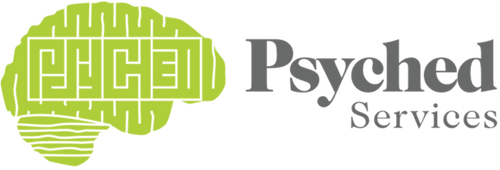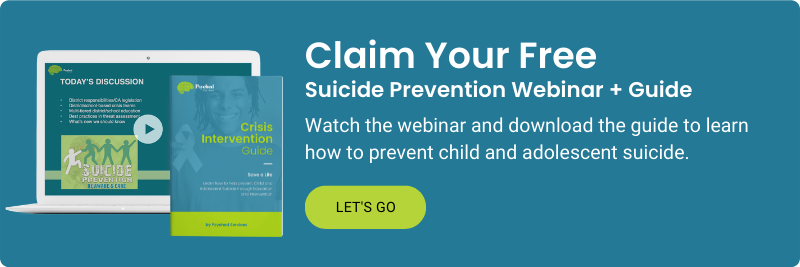Make Your IEP Team Happy With A Collaborative Assessment

Assessment Needs
Practitioners must also consider the best interests of the children they serve…which includes not abandoning clients in times of need.
– Virtual Service Delivery in Response to COVID-19 Disruptions
With the perpetual uncertainty of COVID-19, schools are scrambling to keep up with psychoeducational evaluations for special education. School psychologists want to know how to complete valid assessments, stay safe, and meet timelines, while families want to know how to get the educational support their children so desperately need. Thanks to a model known as collaborative or therapeutic assessment, we think we’ve found an answer to both questions.
Assessment Solutions
It has been noted that the way in which assessment is typically practiced profoundly undermines the usefulness of this potentially powerful diagnostic tool and therapeutic intervention.
It all starts with the amazing work of Dr. Deborah Tharinger, a founding member of the Therapeutic Assessment Institute. Dr. Tharinger has proposed that schools might use the principles of Therapeutic Assessment to further help kids, and we could not be more excited.
Therapeutic Assessment was born from a paradigm known as therapeutic, or collaborative, assessment. This paradigm is our jam. After all, Psyched Services was created with collaboration as the keystone. Collaboration with fellow clinicians sharpens our clinical skills and keeps us up to date with the latest research and community resources. Collaboration with educators and families enhances our understanding of each child and ensures that recommendations are practical, meaningful, and useful to the people who need them.
But this spring, as the world shuttered to a halt with COVID and our team was given the gift of time, we realized that one piece was missing from our collaborative model: the students themselves. So, we drew inspiration from Dr. Tharinger’s work, took our gift of time, and got to work improving our model.
Why Collaboration Works
It’s always about the children. – Charles Barrett
Collaborating with students is not a new idea for us. As school psychologists, we care about our students’ well-being above all else, and we work hard to center their voices. It’s not just the right thing to do; it’s the equitable thing to do. But collaborative assessments take this idea to the next level. They change the way we view assessment altogether. Instead of a top-down expert approach, collaborative assessments say that the clients are the experts. Instead of the end goal being test scores and diagnoses, collaborative assessments say that the process itself can be made therapeutic. You don’t have to take our word for it. There’s research to back it up.
Top 5 Benefits of Collaborative Assessment
1. It allows us to focus on helping kids.
Right now, everyone is worried about kids. It’s not just COVID disrupting their lives. It’s COVID and police brutality and natural disasters and opiod overdoses and suicide rates. More than usual, school psychologists have reason to worry that test scores will not reflect a child’s true ability. That said, we still have a duty to assess. Taking a therapeutic approach means that we focus on building relationships, which in turn gives us a better picture of the whole child and provides more meaningful results.
2. It makes the data more useful.
Collaborative assessments don’t dictate or change the data; they just make the data more useful. No matter what environment we find ourselves in, taking a therapeutic approach means that we look at far more than test scores. We view test sessions as a way to recreate daily experiences, witness how a student responds in real time, and get feedback from them, their family members, and their teachers about what the scores might mean.
3. It amplifies family and educator voices.
A key component of collaborative assessment is learning what questions families, educators, and students have, then working with them throughout the process to answer those questions. Yes, special education testing comes with predetermined questions (i.e. is the student eligible for placement and what services do we recommend), but the true spirit of the law is to help kids. Helping kids means learning their whole story, and learning their whole story means understanding – and addressing – what led them to be referred in the first place.
4. It is culturally responsive.
We cringe when schools leave family voices out of psychoeducational assessments. While we understand that special education assessment is intended for school purposes only, there is absolutely no way to be culturally responsive without getting to know a student’s home life, family values, and community involvement. Taking the time to get to know a student outside of school ends up saving time and creating more helpful data in the long run.
5. It provides recommendations that are practical for everyone.
For the reasons we’ve just discussed, the therapeutic approach lends itself to highly descriptive, individualized, and relevant reports. Getting to know a student’s full story means that test results are easier to interpret and apply to the real world, which in turn yields recommendations that are vetted and practical for all involved.
So how does this help with COVID-19 assessments?
No matter what test procedures schools need to use right now, collaborative assessments can adapt. There is no need to spend extra time, money, and energy to relearn tools that may or may not be valid. Instead, clinicians can simply make better use of the data they already have.
For our part, we’re using a strength-based system to deliver results to students using approachable language, a story-based format, and captivating images. We infuse therapeutic elements into the process so that students, families, and educators get what they need from assessment, no matter what. Check out these video introductions and schedule a free consultation to learn more!



.jpg?width=352&name=absolutvision-82TpEld0_e4-unsplash%20(1).jpg)

